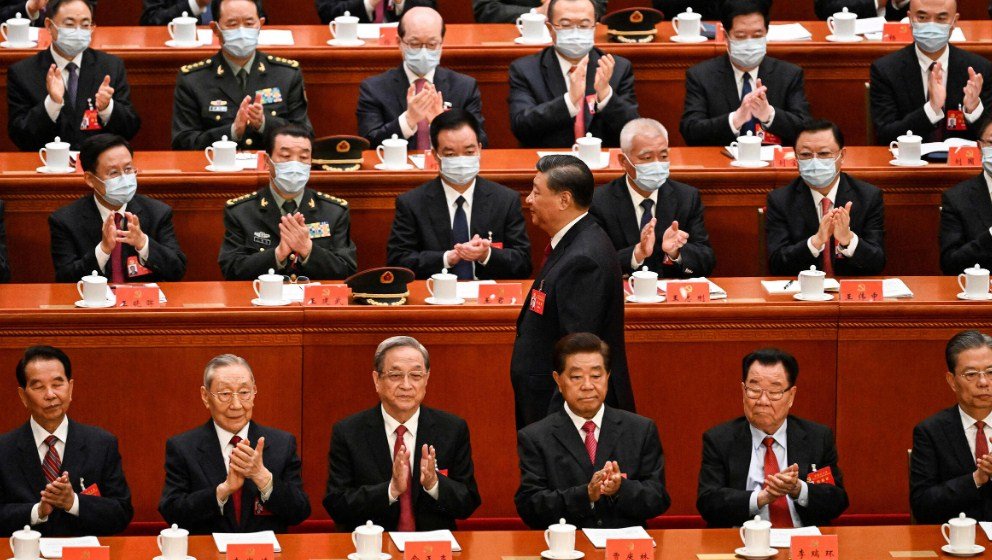China’s military aggression and debt diplomacy pose risks to banks and investors
China’s increasing assertiveness in the Indo-Pacific region and beyond has raised concerns among U.S. lawmakers, who warned of the potential implications for the global financial system. In a hearing on Tuesday, the House Financial Services Committee’s Subcommittee on National Security, International Development and Monetary Policy examined China’s military and economic expansion, and how it affects U.S. interests and allies.
The subcommittee’s chairman, Rep. Emanuel Cleaver, said that China’s aggressive behavior poses a threat to the rules-based international order and the stability of the financial markets. He cited China’s militarization of the South China Sea, its border clashes with India, its crackdown on Hong Kong’s autonomy, and its human rights abuses in Xinjiang as examples of China’s disregard for international norms and laws.
Cleaver also highlighted China’s use of debt diplomacy to gain leverage over developing countries, especially in Africa and Asia. He said that China’s Belt and Road Initiative, a massive infrastructure project that spans over 60 countries, has saddled many of them with unsustainable debt and exposed them to political and environmental risks. He urged the U.S. to counter China’s influence by providing alternative sources of financing and development assistance to these countries.
China’s digital currency and cyber capabilities could challenge U.S. dollar dominance
Another area of concern for the U.S. lawmakers was China’s development of a digital currency, which could potentially challenge the U.S. dollar’s role as the global reserve currency. China has been testing its digital yuan, or e-CNY, in several cities and plans to expand its use in the 2022 Winter Olympics in Beijing. The digital yuan is a central bank digital currency, or CBDC, that is issued and controlled by the People’s Bank of China, the country’s central bank.
The subcommittee’s ranking member, Rep. Andy Barr, said that China’s digital currency could pose a threat to the U.S. financial system and national security, as it could enable China to evade U.S. sanctions, undermine the dollar’s dominance, and facilitate illicit activities. He also warned that China could use its digital currency to collect data on users and influence their behavior through social credit scores and surveillance.
Barr also expressed concern about China’s cyber capabilities, which he said could be used to disrupt or sabotage the U.S. financial infrastructure. He cited the recent ransomware attacks on Colonial Pipeline and JBS, which affected the supply of fuel and meat in the U.S., as examples of the vulnerability of the U.S. economy to cyberattacks. He called for the U.S. to enhance its cyber defenses and deterrence, and to cooperate with its allies to counter China’s cyber threats.
U.S. needs to strengthen its financial resilience and competitiveness
The U.S. lawmakers also heard from several experts, who offered their views and recommendations on how to deal with China’s challenge to the global financial system. The witnesses included:
- Jennifer Hillman, senior fellow for trade and international political economy at the Council on Foreign Relations, who argued that the U.S. should work with its allies and partners to set and enforce high standards for trade, investment, and finance, and to hold China accountable for its unfair practices and violations of international rules.
- Daniel Rosen, founding partner of Rhodium Group, who suggested that the U.S. should focus on strengthening its own financial resilience and competitiveness, rather than trying to contain or isolate China. He said that the U.S. should invest in its infrastructure, innovation, education, and social safety net, and reform its tax, regulatory, and immigration policies, to enhance its economic growth and productivity.
- Elizabeth Rosenberg, senior fellow and director of the Energy, Economics, and Security Program at the Center for a New American Security, who emphasized that the U.S. should maintain its leadership and innovation in the development and regulation of digital currencies and technologies, and to collaborate with its allies and multilateral institutions to shape the global norms and standards for the digital economy.
- Randal Quarles, vice chair for supervision at the Federal Reserve Board, who testified that the U.S. financial system is well prepared and resilient to cope with the risks and challenges posed by China. He said that the U.S. has a robust and comprehensive framework for financial stability oversight, supervision, and regulation, and that the U.S. is actively engaged in international forums and dialogues to address cross-border issues and promote financial stability.
The hearing was part of the subcommittee’s ongoing oversight of the national security implications of the U.S. financial system and the role of the U.S. in the global economy. The subcommittee’s members expressed their bipartisan support for the U.S. to take a proactive and coordinated approach to counter China’s threat and to protect and advance the U.S. interests and values.

